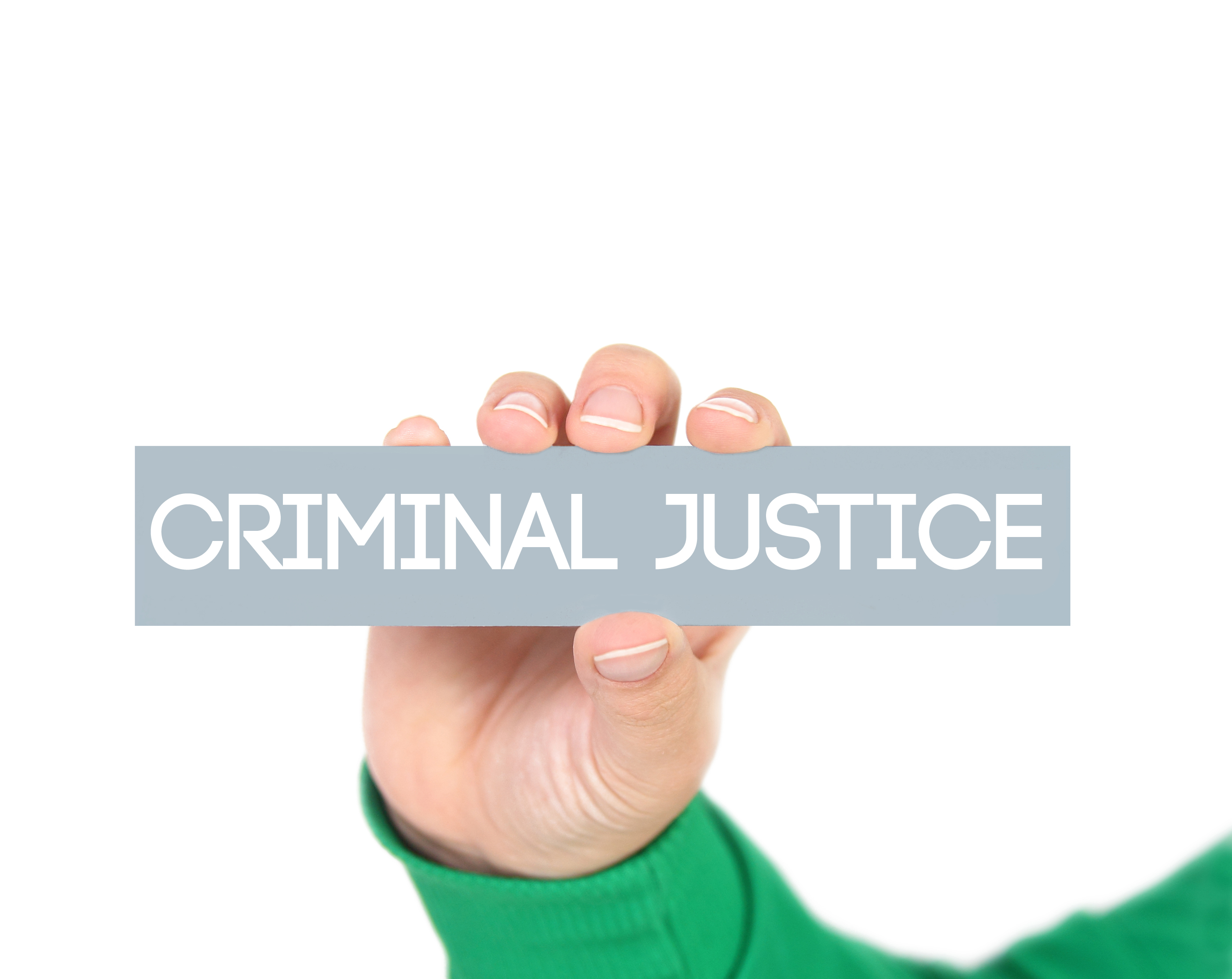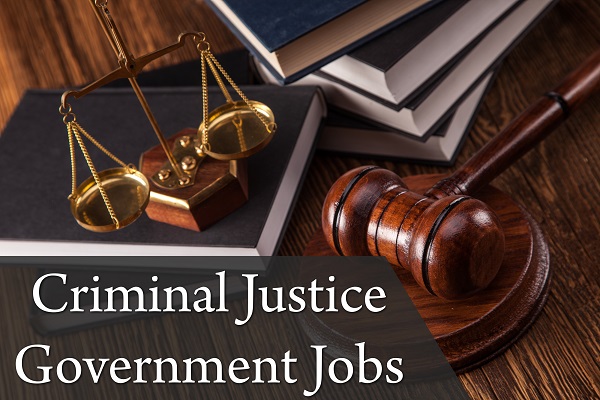

Category: Criminal Justice
How to Use LinkedIn to Network in the Criminal Justice Industry

Finally graduating and earning your criminal justice degree is such a triumphant feeling. You absolutely should be proud of yourself for all the hard work you’ve done. You earned the prize, but it’s not time to relax just yet. The next step is to leverage the good grades, topic knowledge and experience you’ve gained to impress potential employers and get your dream job. The job search can be a bit intimidating and overwhelming. However, in this day of technology, you’re fortunate to have a number of efficient and effective ways to learn about open positions for which you qualify and to connect with key hiring personnel for those positions. Online networking can provide you with benefits like learning experiences, a relationship with a mentor or opportunities to significantly contribute to the profession. You can use social media, specifically LinkedIn, to network in the criminal justice industry and make connections that could lead to a great job.
First, Create Your Account
Ideally, your online networking strategy should begin prior to graduation. By your final year or last semester, depending on the length of your criminal justice program, you should set up a LinkedIn account. This is your professional online networking platform. Thus, you will need to be sure your profile looks professional, almost like a resume. Add quantifiable achievements to your description so that potential employers can see specifics about the kinds of accomplishments you bring to the table.
Use key words you might see in job descriptions for which you intend to apply. This will make you easier to find if head hunters or company representatives are seeking someone for a particular position. List significant skills that are easy to scan, and include only your most relevant work, volunteer or internship experience.
Make Connections
Begin to search for contacts within the criminal justice field. You can add your instructors and classmates first. That makes sense, as they’re the people closest to you right now. Experts have different opinions on whether you should connect with many people or whether it makes more sense to stay within your industry and people you would ordinarily network with in real life. Use your judgement. Taking a risk may be smart. For example, if you see that one of your personal contacts knows someone at a firm where you would like to work, it makes sense to ask for an introduction. One rule that always applies is to make each connection personal. Take time to write a personalized message of introduction when connecting and always try to offer something useful to your connections, rather than always asking for help or a favor.
Follow Relevant Accounts
Be sure to follow a wide variety of companies, agencies or organizations that hire for the type of criminal justice position you hope to attain. On that note, you should have an idea by the time of the kind of work you want to do. Add your specialization area to your profile so it is clear. Following key players will allow you to see when job postings are available.
LinkedIn can be a valuable networking tool in the criminal justice industry. Reach out to The Paralegal Institute if you have specific questions about networking within the field.
What’s the Difference Between a Probation Officer and a Parole Officer?

Many people get parole officers and probation officers mixed up. It’s an understandable mistake, given that both work with someone who has been convicted of a crime. The real difference between a probation officer and a parole officer has to do with the sentencing of those they work with.
Probation officers typically supervise people who have not been ordered–or remanded–to state prison, while parole officers usually work with those who have served part of their sentence in state prison and who have been provisionally released–or paroled–back into the community.
In most places, persons convicted of misdemeanors such as driving under the influence or domestic violence, receive “court” or “informal” probation for a fixed period of time. As long as they are not cited for committing a new offense or for violating the terms of their release (perhaps by failing to complete any court-ordered counseling sessions), they remain free and do not report to anyone, as the judge hearing their case serves as their “informal” probation officer.
In contrast, those who are convicted of a felony usually face the potential of being incarcerated for a year or more, either in state prison or in a local jail. Because felonies are more serious crimes, before a judge will sentence a defendant in a felony case they will usually request a report from the County probation office asking for their input on what the defendant’s sentence should be. Probation officers must interview the defendant, examine the defendant’s past criminal history, review the facts of the case and provide an estimate to the Court on how likely the defendant is to successfully complete a probationary term and how difficult they are expected to be to supervise.
If the court grants the defendant probation, their probation officer is in charge of making sure they are living a lawful life that contributes to the community. This means that they are in charge of drug testing, searches, and making sure that the limitations created by the probation have not been broken. If the defendant is found in violation of his or her probation, it’s up to their probation officer to tell the court.
In contrast, a parole officer usually works with defendants who have been sentenced to state prison. Instead of trying to determine how likely it is that the defendant can be successfully supervised, a parole officer’s goal is to prepare a reentry plan so that the defendant can rejoin society after serving what may have been a lengthy prison stay. This might include trying to determine where the best place is for a prisoner to live after release and what other steps they need to take to maximize the chances they will be able to be honorably discharged from their parole. In the case of registered sex offenders, a parole officer must usually plan for the defendant to be supervised for the rest of their lives to some degree, if only by being required to register their address each year.
Both parole and probation officers are an important part of the criminal justice system. If you are interested in becoming a parole or probation officer, taking our Criminal Justice Program online is a good place to start.
Criminal Justice Government Jobs

Popular Government Jobs in Criminal Justice
Federal, state, and local governments offer a wide variety of fast-paced jobs for applicants with an associate’s degree or diploma in criminal justice. Although the mention of a career in criminal justice might bring to mind being a police officer, the truth is that many government job openings exist in the criminal justice system to take you into any career path you could possibly imagine with your associate’s degree or diploma.
Whether your interests are in forensics, law enforcement, corrections, the courts, or other segments of the criminal justice system, there is probably a government job that will appeal to you. What follows are just a few of the many government jobs available to you with an associate’s degree or diploma in criminal justice.
Law Enforcement
Uniformed law enforcement personnel usually carry firearms and enforce the laws of the state in which they are employed. They have the power to make arrests, conduct searches, and issue tickets or citations. Typical law enforcement jobs at the state and local levels include:
- Police officer and deputy sheriff

- Fish and wildlife police and game wardens
- Investigators working for state and local agencies to enforce agency regulations and policies, such as alcohol and beverage control, child and adult protective services, and public health agencies
On the federal level, government jobs in criminal justice include police officers, investigators, and special agents for agencies such as:
- Bureau of Alcohol, Tobacco, Firearms and Explosives
- Federal Bureau of Investigation
- Drug Enforcement Administration
- S. Marshals Service
- S. Fish & Wildlife Service
Other federal agencies, such as the Department of Homeland Security and the U.S. military, have law enforcement jobs available as well.
Correctional Officers
Corrections is the segment of the criminal justice system that takes control of someone arrested and awaiting trial, or convicted and sentenced to incarceration. Correctional officers usually work in jails and prisons overseeing inmates.
Officers work in close contact with the inmates while maintaining order throughout the facility. On the federal level, jobs can be available in any of the many prisons operated by the U.S. Bureau of Prisons or by the Department of the Interior.
Courtroom Deputies
The efficient functioning of the federal court system depends, to a large extent, on the courtroom deputies. Deputies help judges by performing a number of duties, including:
- Managing what goes on in the courtroom
- Managing the court’s calendar, keeping track of case deadlines, and filing documents
- Keeping judges informed about the status of cases
- Safeguarding and managing evidence and exhibits during trials
- Coordinating with other clerks to schedule jurors and courtroom personnel
Criminal Justice Careers Starting with a Government Job
Many of the government jobs in criminal justice can transition into careers in the private sector once a person retires or elects to leave government service. For example, a career as a police officer may eventually lead someone into the private security field as an investigator for various businesses, including insurance companies.
The Power of Your Criminal Justice Education
A great criminal justice education will give you a competitive edge by introducing you to the institutions and principles that you will encounter in the government job you want. Contact us today to learn more about how the associate’s degree or diploma you can earn at The Paralegal Institute at Brighton College can be your first step toward preparing you for an exciting career in criminal justice.
Criminal Justice Government Jobs
Popular Government Jobs in Criminal Justice
Federal, state, and local governments offer a wide variety of fast-paced jobs for applicants with an associate’s degree or diploma in criminal justice. Although the mention of a career in criminal justice might bring to mind being a police officer, the truth is that many government job openings exist in the criminal justice system to take you into any career path you could possibly imagine with your associate’s degree or diploma.
Whether your interests are in forensics, law enforcement, corrections, the courts, or other segments of the criminal justice system, there is probably a government job that will appeal to you. What follows are just a few of the many government jobs available to you with an associate’s degree or diploma in criminal justice.
Law Enforcement
Uniformed law enforcement personnel usually carry firearms and enforce the laws of the state in which they are employed. They have the power to make arrests, conduct searches, and issue tickets or citations. Typical law enforcement jobs at the state and local levels include:
- Police officer and deputy sheriff
- Fish and wildlife police and game wardens
- Investigators working for state and local agencies to enforce agency regulations and policies, such as alcohol and beverage control, child and adult protective services, and public health agencies
On the federal level, government jobs in criminal justice include police officers, investigators, and special agents for agencies such as:
- Bureau of Alcohol, Tobacco, Firearms and Explosives
- Federal Bureau of Investigation
- Drug Enforcement Administration
- U.S. Marshals Service
- U.S. Fish & Wildlife Service
Other federal agencies, such as the Department of Homeland Security and the U.S. military, have law enforcement jobs available as well.
Correctional Officers
Corrections is the segment of the criminal justice system that takes control of someone arrested and awaiting trial, or convicted and sentenced to incarceration. Correctional officers usually work in jails and prisons overseeing inmates.
Officers work in close contact with the inmates while maintaining order throughout the facility. On the federal level, jobs can be available in any of the many prisons operated by the U.S. Bureau of Prisons or by the Department of the Interior.
Courtroom Deputies
The efficient functioning of the federal court system depends, to a large extent, on the courtroom deputies. Deputies help judges by performing a number of duties, including:
- Managing what goes on in the courtroom
- Managing the court’s calendar, keeping track of case deadlines, and filing documents
- Keeping judges informed about the status of cases
- Safeguarding and managing evidence and exhibits during trials
- Coordinating with other clerks to schedule jurors and courtroom personnel
Criminal Justice Careers Starting with a Government Job
Many of the government jobs in criminal justice can transition into careers in the private sector once a person retires or elects to leave government service. For example, a career as a police officer may eventually lead someone into the private security field as an investigator for various businesses, including insurance companies.
The Power of Your Criminal Justice Education
A great criminal justice education will give you a competitive edge by introducing you to the institutions and principles that you will encounter in the government job you want. Contact us today to learn more about how the associate’s degree or diploma you can earn at The Paralegal Institute at Brighton College can be your first step toward preparing you for an exciting career in criminal justice.
